Apple is advertising at WWDC 21 with new data protection functions for all operating systems, from watchOS 8 to macOS Monterey. With iCloud +, users will in future be able to send their data encrypted through two relays, while Siri processes more audio data directly on the device instead of sending it to the cloud first.
Especially It is important to Apple again and again in the presentation that the new functions not only protect their own data from unauthorized access by third parties, but also that Apple itself does not have any insight into the user's data, so it is not itself an exception >
Private Relay with iCloud +
With iCloud +, Apple is introducing features such as “iCloud Private Relay”, “Hide E-Mail Address” and “extended HomeKit Secure Video Support” to set prices for previous iCloud tariffs.
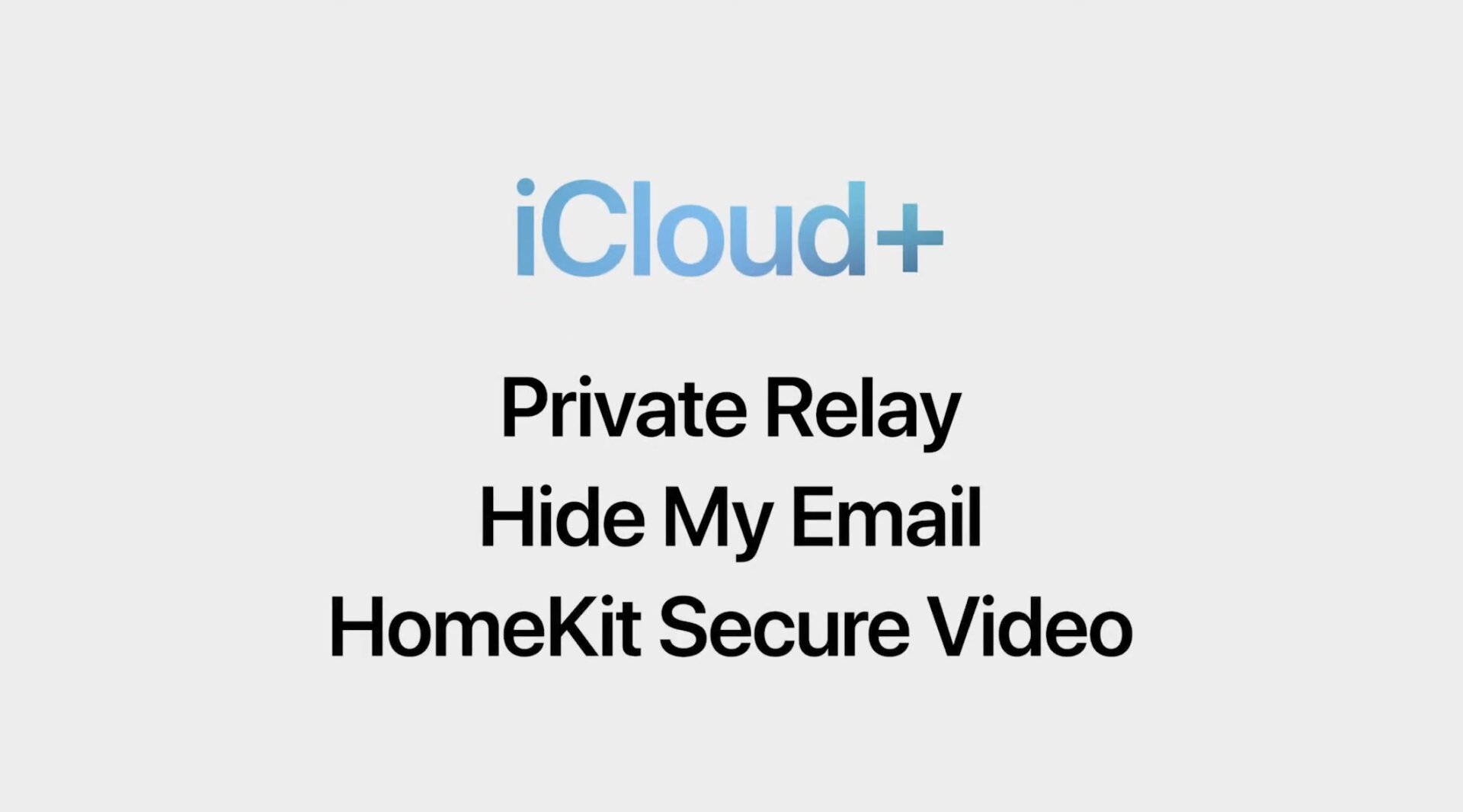
Private Relay is a new Internet privacy protection service that is integrated directly into iCloud and enables users to surf through encrypted communication via two relay servers. When surfing with Safari, Private Relay encrypts all outgoing data traffic from the device so that no one between the user and the accessed website can access and read the data – not even Apple or the Internet provider. All user inquiries are sent through two separate internet relays. The first gives users an anonymous IP address associated with their region, but not their actual location. The second decrypts the web address you want to visit and forwards it to your destination. Which user calls which page can no longer be assigned.
Any number of email addresses as redirects
With “Hide E-Mail Address”, which extends the functions of “Sign in with Apple”, users can set up and use random e-mail addresses that are forwarded to their personal inbox. Whenever you do not want to reveal your personal e-mail address, you can switch to a specially created forwarding. The function is integrated in Safari, the iCloud settings and mail and allows users to create any number of e-mail addresses and delete them at any time. It comes in Mail as part of the update to iOS 15, iPadOS 15, macOS Monterey and iCloud.com.
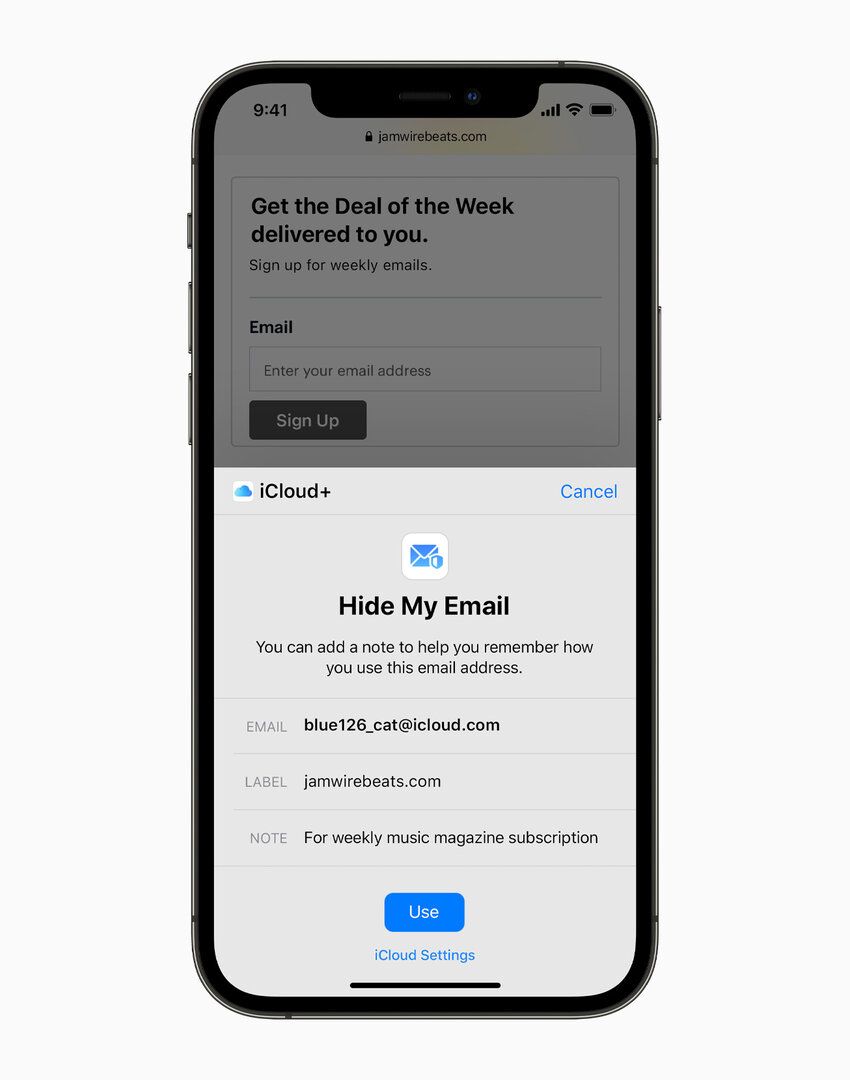 E-Mail- Hide address (Image: Apple)
E-Mail- Hide address (Image: Apple) Image 1 of 3
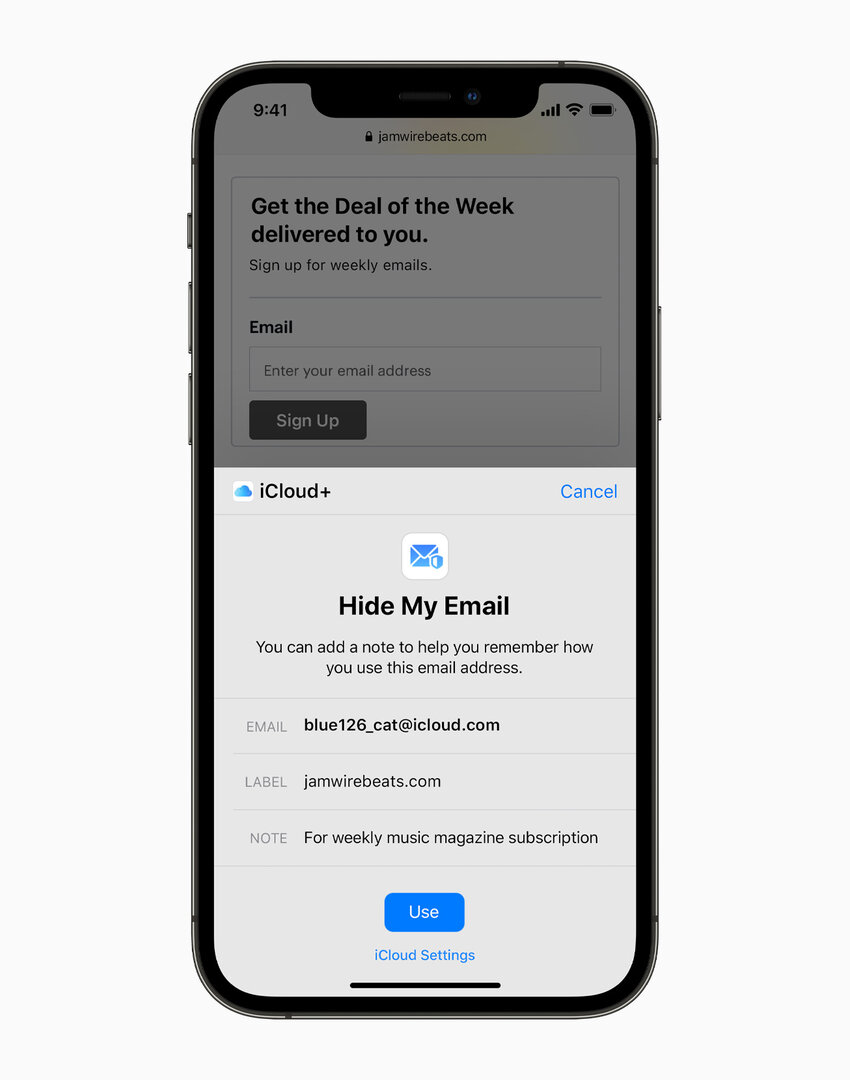 Hide email address
Hide email address 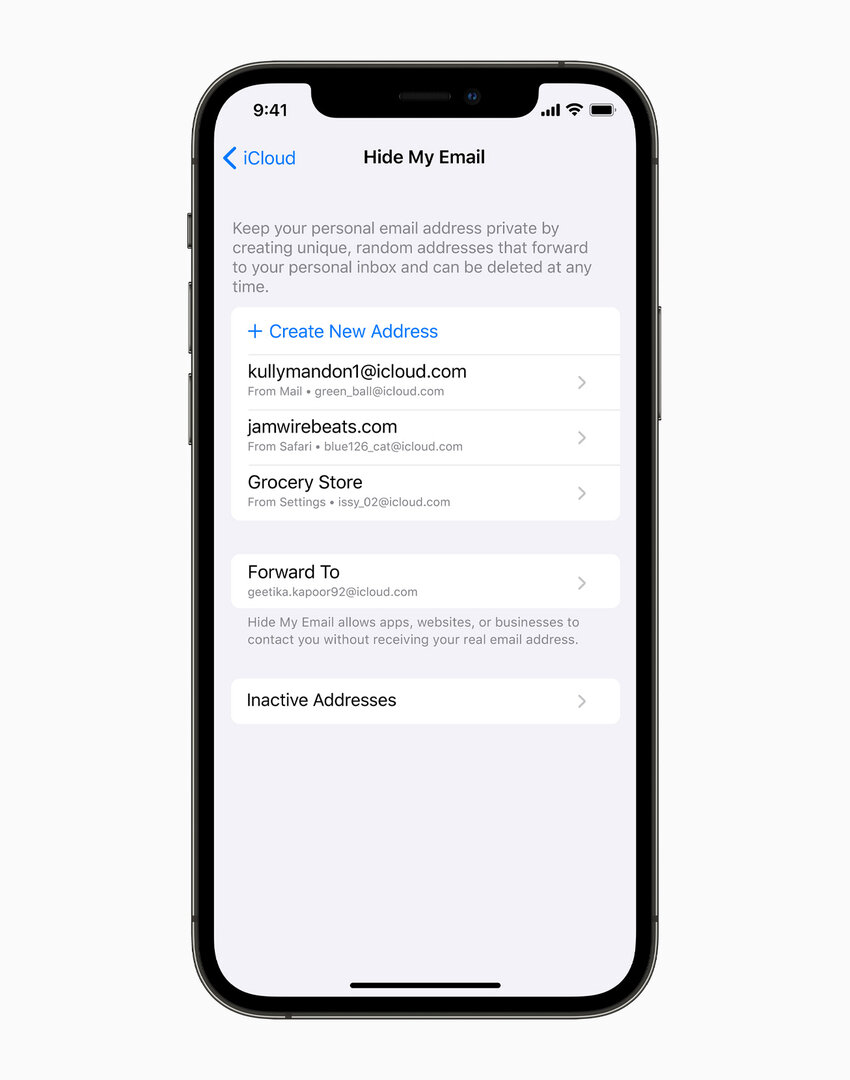 Hide email address
Hide email address More cameras with HomeKit Secure Video
iCloud + also extends the integrated support for HomeKit Secure Video, so that users can add more cameras to the Home app – an unlimited number in the largest storage plan for around 10 euros a month. Video recordings are encrypted and stored in iCloud. This is not counted towards the storage capacity of the iCloud subscription. Activities detected by cameras are also encrypted before they are saved in iCloud.
Process audio material from Siri requests on the device
It is a thorn in the side of many users that all requests to digital voice assistants are loaded into the cloud, saved and processed there. Not only Apple is therefore working on processing more and more inquiries directly on the device – also to increase response times. Apple would like to move the processing of many requests through Siri to the device – things like starting apps, setting timers and alarms, changing settings or controlling music can also be done without an internet connection.
< figure class = "image__wrap" style = "max-width: 568px"> 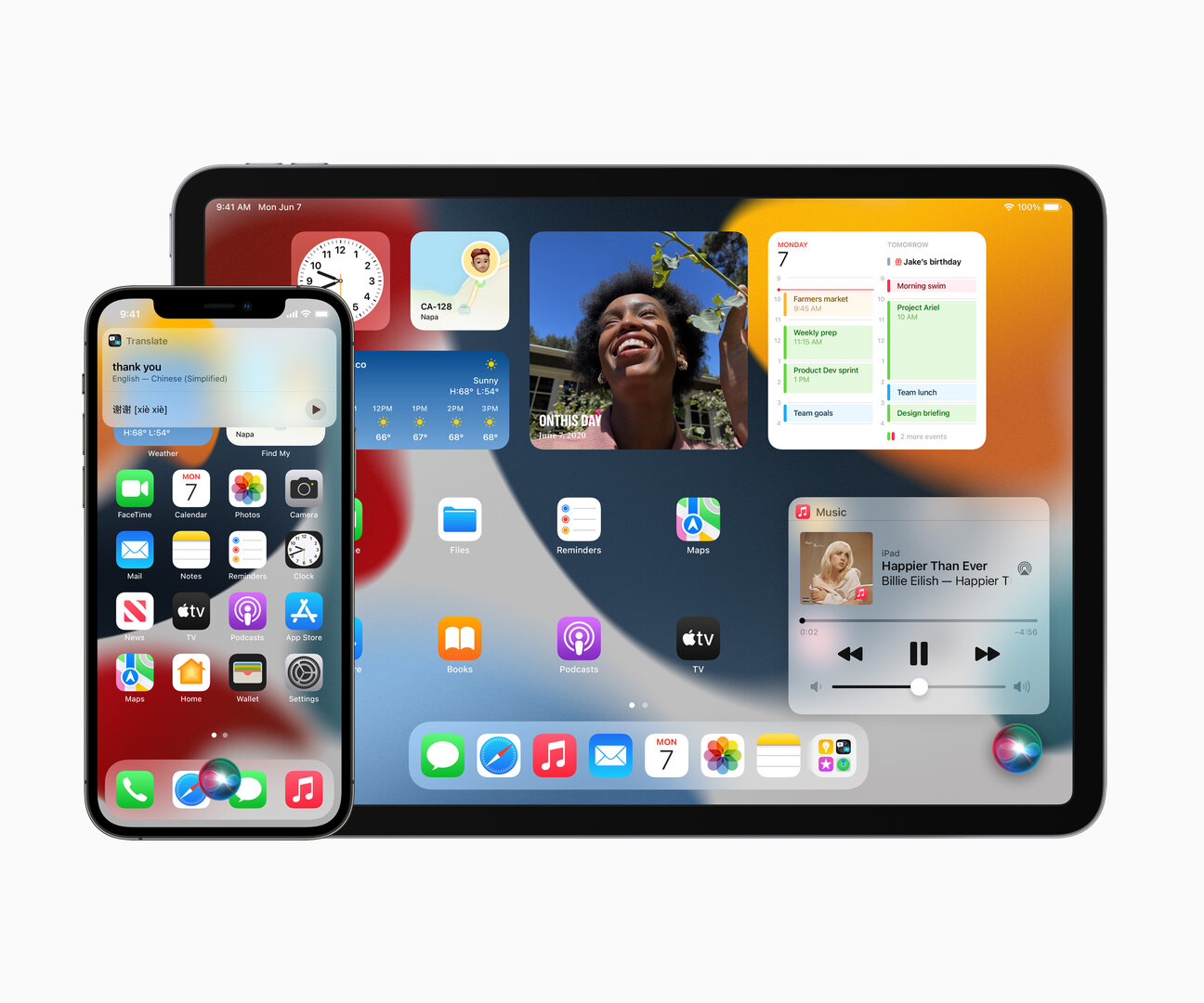 Siri: Process more requests locally (Image: Apple)
Siri: Process more requests locally (Image: Apple)
< h2 class = "text-width text-h2" id = "section_keine_versteckten_pixel_mehr_in_mails"> No more hidden pixels in mails
In the mail app, Apple will in future prevent senders from using invisible pixels to collect information about users. This includes, for example, whether the e-mail was opened, which is checked for almost every newsletter. In addition, Apple masks the IP address of the user so that it cannot be linked to other online activities or used to determine the location.
Tracking- Protection is being expanded
In addition, Apple is expanding the tracking protection in Safari by hiding the users' IP addresses from trackers. As a result, they cannot use the user's IP address as a unique identifier to record their cross-website activities and to create a profile about them.
 Apple Safari Privacy Report (Image: Apple)
Apple Safari Privacy Report (Image: Apple) 
